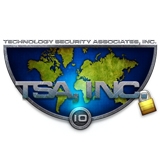Change Is Here for Export Control, So Is Help


Export control reform help is here. For anyone exporting his or her product or technology, these changes could mean big (or subtle but important) changes in your export policies. TSA blogger Heidi France is here to help you navigate these changes.
TSA is a Service-Disabled Veteran-Owned Small Business located in California, MD, focused on supporting International Programs within NAVAIR. This support includes a strong understanding of the International Traffic in Arms Regulations (ITAR) and the ability to dissect, interpret, and help enforce the regulations.
Recently, there have been many significant changes to the regulations for exporting goods and technology known as the Export Control Reform Initiative. In her blog, How to be Export-dinary; Navigating Through Export Controls, Mrs. France shares her strong knowledge of both ITAR and the Export Initiative and how they apply to their products and in-house compliance programs in order to avoid unnecessary violations. If you are a small exporter you know how hard it was just to keep up with the ITAR. Help has arrived!
Mrs. France’s technical expertise involves comprehensive International Programs Security support, including international cooperative programs, foreign disclosures, foreign visits, foreign exchange programs, Personnel Exchange Program, Foreign Liaison Officers, Cooperative Program Personnel, Delegation of Disclosure Authority Letters, DoN foreign policy support and security-related program acquisition documentation, and she provides training in all of these areas.
Who is affected by the export control reform and what is considered “exports”?
According to Mrs. France, “any company or individual who “exports” their product or technology is affected by Export Control Reform.” As defined by § 120.17 of the International Traffic in Arms Regulations an export is:
(1) Sending or taking a defense article out of the United States in any manner, except by mere travel outside of the United States by a person whose personal knowledge includes technical data; or
(2) Transferring registration, control or ownership to a foreign person of any aircraft, vessel, or satellite covered by the U.S. Munitions List, whether in the United States or abroad; or
(3) Disclosing (including oral or visual disclosure) or transferring in the United States any defense article to an embassy, any agency or subdivision of a foreign government (e.g., diplomatic missions); or
(4) Disclosing (including oral or visual disclosure) or transferring technical data to a foreign person, whether in the United States or abroad; or
(5) Performing a defense service on behalf of, or for the benefit of, a foreign person, whether in the United States or abroad.
(6) A launch vehicle or payload shall not, by reason of the launching of such vehicle, be considered an export for purposes of this subchapter. However, for certain limited purposes (see § 126.1 of this subchapter), the controls of this subchapter may apply to any sale, transfer or proposal to sell or transfer defense articles or defense services.




















